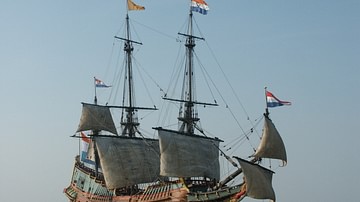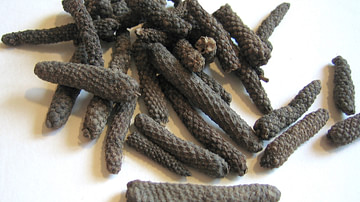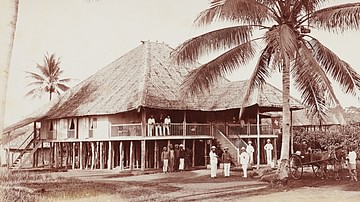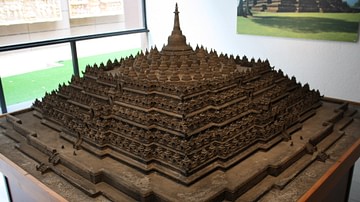Search
Search Results

Article
Wreck of the Batavia
The Batavia was a Dutch East India Company ship that foundered on the coral reefs of the Houtman Albrolhos Islands, 60 kilometres (37 mi) off the coast of Western Australia, just before dawn on 4 June 1629. It was the flagship of a fleet...

Article
Christianity in Japan
Christianity arrived in Japan in 1549 when Jesuits first set foot in Kagoshima. Initial attempts to spread the religion were met with confusion; however, through employing various methods, they began to see success. However, by 1650, Christianity...

Article
Caesarea Maritima's Role in the Mediterranean Trade
Caesarea Maritima was located on the eastern coast of the Mediterranean Sea. Built from the ground up in 22-10 BCE by Rome's client king, Herod the Great (r. 37-4 BCE), its location in relation to ship traffic and proximity to historical...

Article
Middle Eastern Power Shifts & the Trade of Pepper from East to West
Pepper has long been the king of spices and for almost 2,000 years dominated world trade. Originating in India, it was known in Greece by the 4th century BCE and was an integral part of the Roman diet by 30 BCE. It remained a force in Europe...

Article
Parthia: Rome's Ablest Competitor
As a superpower in its own right and in competition with Rome, Parthia's empire - ruling from 247 BCE to 224 CE - stretched between the Mediterranean in the west to India in the east. Not only did the Parthians win battles against Rome they...

Article
Interview: Swiss Colonialism Exhibition
The National Museum Zurich recently opened a comprehensive and multi perspectival exhibition on Switzerland’s colonial past: Colonial – Switzerland’s Global Entanglements. Based on the latest, original research and drawing on biographies...

Article
Baroque, Age of Contrasts - Exhibition Interview Schweizerisches Landesmuseum
The Baroque era, which lasted from roughly 1580 and 1780, was a time of enormous contrasts: Opulence and innovation, on the one hand; death and crises, on the other. Ongoing religious wars and the opening of global trade networks led to mass...

Image
Borobudur Model
A model of the Borobudur Buddhist temple in Java, Indonesia. The temple was built in the 8th century CE. (Vatican Museums, Rome)

Image
Homo Floresiensis Skeleton
Cast of a Homo floresiensis skeleton - a species nicknamed ‘hobbit’ because it only stood about 1 meter tall. This extinct species of fossil human lived on the island of Flores, Indonesia and was first excavated there in 2003 CE at Liang...

Image
Statue of the Hindu Moon God Chandra
This statue of the Hindu moon god Chandra is made from andesite and comes from the island of Java in what is now Indonesia. It dates from the late-9th to early-10th century CE. (Museum Rietberg, Zürich).